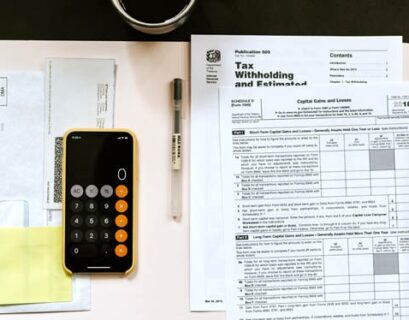As a freelancer, building and maintaining positive client relationships is essential for success in the dynamic world of independent work. However, despite best efforts, disagreements and disputes with clients can arise, presenting challenges that require tactful resolution. Handling these issues effectively is not only crucial for preserving your reputation but also for safeguarding your business and ensuring continued success. In this article, we’ll explore strategies and best practices to help freelancers navigate disputes or issues with clients in a professional and constructive manner.
Understanding Common Causes of Client Disputes
Before delving into strategies for resolving client disputes, it’s important to understand the root causes of these conflicts. Common issues that may lead to disputes include:
- Miscommunication: Unclear project requirements, expectations, or timelines can lead to misunderstandings and disagreements between freelancers and clients.
- Scope Creep: Changes or additions to project scope, beyond what was initially agreed upon, can result in disputes over additional costs, timelines, or deliverables.
- Payment Disputes: Delays or non-payment of invoices, discrepancies in billing, or disagreements over pricing can strain client relationships and lead to disputes.
- Quality of Work: Differences in expectations regarding the quality or standard of work delivered may result in dissatisfaction and disputes over revisions or refunds.
Strategies for Handling Client Disputes
When faced with a dispute or issue with a client, it’s essential to approach the situation calmly, professionally, and proactively. Here are some effective strategies for resolving client disputes:
1. Communicate Openly and Honestly
Effective communication is key to resolving client disputes. Initiate a conversation with the client to discuss their concerns, clarify any misunderstandings, and seek common ground. Listen actively to their perspective, express empathy, and acknowledge their feelings. Be transparent about your own concerns or limitations and work together to find a mutually satisfactory solution.
2. Review the Contract or Agreement
Refer back to the contract or agreement signed with the client to clarify any terms, expectations, or deliverables that may be in dispute. Ensure that both parties understand their rights, responsibilities, and obligations outlined in the contract. Use the contract as a reference point to guide discussions and negotiations toward a resolution.
3. Offer Solutions and Compromises
Propose practical solutions or compromises to address the client’s concerns and resolve the dispute amicably. Be flexible and willing to accommodate reasonable requests, such as providing additional revisions, adjusting project timelines, or offering partial refunds. Focus on finding win-win solutions that prioritize maintaining the client relationship while protecting your interests as a freelancer.
4. Document Everything
Maintain thorough documentation of all communications, agreements, and interactions with the client related to the dispute. Keep records of emails, messages, phone calls, and meetings, including any agreements reached or decisions made during discussions. Documentation serves as a valuable reference in case of future disputes and provides evidence to support your position.
5. Seek Mediation or Arbitration
If efforts to resolve the dispute directly with the client are unsuccessful, consider seeking third-party mediation or arbitration to facilitate resolution. A neutral mediator or arbitrator can help facilitate constructive dialogue, clarify issues, and guide the parties toward a mutually acceptable solution. Mediation or arbitration can be a cost-effective and efficient alternative to litigation for resolving disputes.
6. Know When to Walk Away
In some cases, despite best efforts, it may not be possible to reach a satisfactory resolution with the client. If the dispute persists or the client becomes unreasonable or hostile, it may be necessary to consider terminating the relationship. While walking away from a client can be difficult, prioritizing your well-being and preserving your reputation may ultimately be the best course of action.
Preventing Future Disputes
While disputes with clients are inevitable in the freelancing world, there are proactive steps freelancers can take to minimize the likelihood of conflicts:
- Clear Communication: Establish clear channels of communication with clients from the outset, and ensure that project requirements, expectations, and timelines are clearly defined and documented.
- Detailed Contracts: Draft comprehensive contracts or agreements that outline the scope of work, deliverables, timelines, payment terms, and dispute resolution procedures. Clearly articulate expectations and responsibilities to avoid misunderstandings.
- Regular Updates: Keep clients informed of project progress through regular updates, status reports, or milestone reviews. Proactive communication helps manage expectations and prevents surprises or disappointments.
- Manage Scope Changes: Establish a process for managing scope changes or revisions to the project and communicate any potential impacts on timelines or costs upfront. Obtain written approval from the client for any changes to the scope of work.
- Prompt Invoicing and Payment: Invoice clients promptly for work completed and follow up on overdue payments in a timely manner. Establish clear payment terms and consequences for late payments to encourage timely payment.
Conclusion
Client disputes are an inevitable aspect of freelancing, but they need not derail your business or damage your reputation. By approaching disputes with professionalism, empathy, and a commitment to resolution, freelancers can navigate conflicts effectively and preserve positive client relationships. By implementing proactive strategies to prevent disputes and fostering open communication and collaboration with clients, freelancers can minimize the likelihood of conflicts and focus on delivering exceptional work and achieving business success. Remember that handling disputes with integrity and professionalism not only resolves immediate issues but also strengthens your reputation as a reliable and trustworthy freelancer in the long run.













